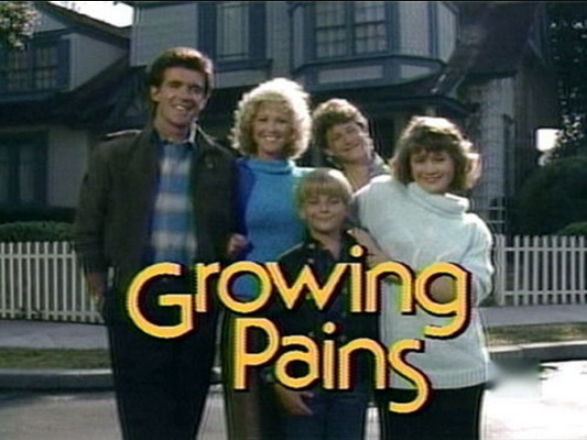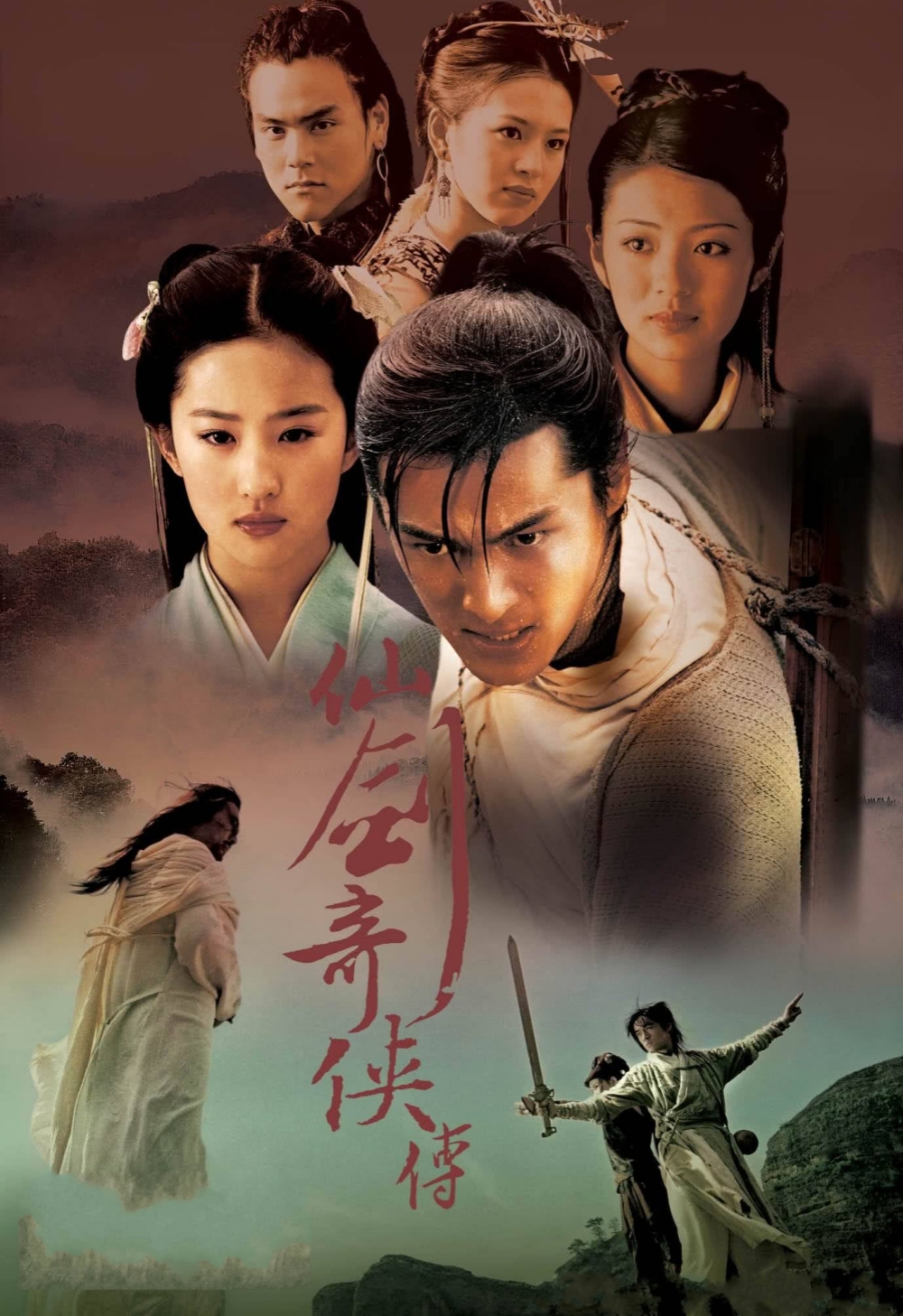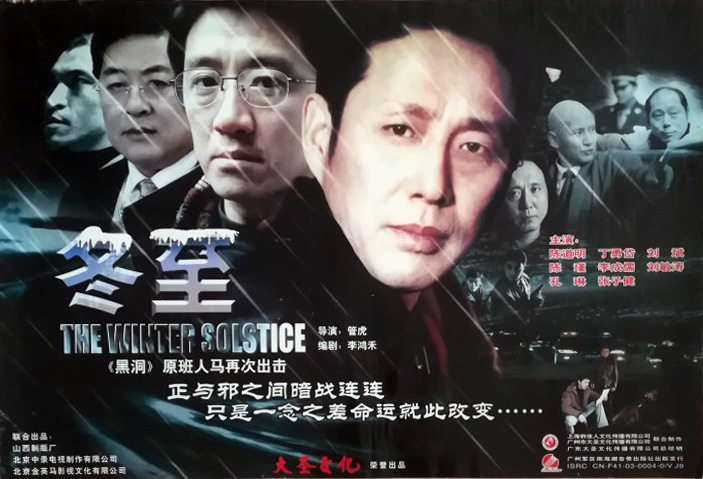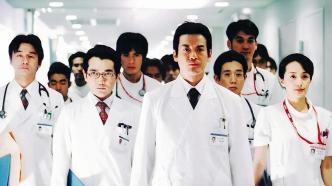
Editor's note: This is a nostalgic theater.
"The White Tower" may not be the most well-known Japanese drama in China, but it should be the one with the highest broadcast standards. Being able to be on the platform of "Six Princesses" actually proves the society's recognition of the ideological and artistic value of the play. For this reason, whenever people talk about this classic work, they always habitually give seemingly profound literary criticism. For example, Zaizen (played by Tosaki Karasawa) represents "ambition" and Satomi (played by Yosuke Eguchi) represents "justice", so this play has become a torture of the rationality of the medical system and a dark look at human nature. The revelation of the face has even become a discussion of philosophical issues.
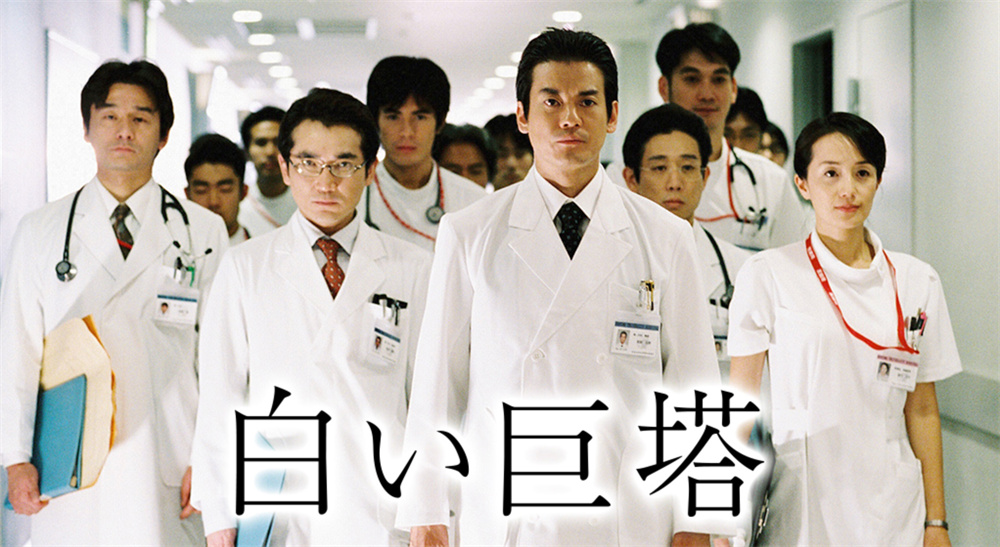
"The White Tower" poster
This may be the fate of classic works - they are often placed in too high a position, which will scare away viewers. People keep repeating lofty words and concepts in their mouths, but they may just be polite and polite. It's like "Tokyo Love Story" still affects the love view of that generation of viewers, while "The White Tower" just represents a taste, that's all.
But this may be a complete misunderstanding, because there is a very close connection between this show and our lives, but we may not be aware of it yet. It has been 20 years since the show first aired. The ignorant boy who rented the DVD to watch it has now reached middle age. Looking back, it turns out that my whole life may have been fully explained by "The White Tower".

Tomeaki Karasawa as Goro Zaizen
Why did this drama choose Caiqian as the absolute protagonist? I used to think it might be because of the charm of the character. Dr. Sima in "Looking Back and See Him Again" captivated so many audiences. This kind of character who is both good and evil is always easier to shine. However, after leaving campus and struggling for many years, I realized how naive my previous ideas were. The reason why Zaizen Goro is the central character of "The White Tower" and we always side with him unknowingly is because, in a sense, each of us is "Zaizen". .
Of course, most of us will never reach the heights of life before we spend our whole lives. However, his life journey of climbing the "White Tower" is something that everyone will inevitably experience together. For this reason, as you grow older, you will have new understanding and understanding of Zaizen Goro's life.

Zaizen (played by Tomeaki Karasawa) and Satomi (played by Yosuke Eguchi)
The plot of "The White Tower" can be roughly divided into three sections. The first part is the battle for the position of professor at Naniwa University; the second part is the medical lawsuit caused by the patient Sasaki; and the third part is Zaimae's diagnosis of cancer until his regretful death.
The focus of the first paragraph is Caiqian's "ambition" or "desire." In terms of ability alone, it was natural for him to become a professor, but the complex psychology of jealousy and hatred of his mentor, Professor Dong, became the biggest obstacle before Cai Qian. Some people described the power struggle as "dirty" and criticized both camps for their unscrupulous tactics.
This statement certainly makes sense, but once you become a migrant worker, you know that unless you have no ideals or pursuits at all, it is not that easy to be alone. Unlike Zaimae, Satomi insists on doing his best for every patient. He also believes that conducting scientific research does not require the blessing of power. When we were watching the drama, I'm afraid we were all deeply shocked by Satoshi's uprightness and eloquence. However, after working, we also understood that it is difficult for people who are too idealistic to survive in the workplace, let alone how much they can make a contribution. This truth is cruel, but extremely true.
Professor Ohuchi, who symbolizes fairness and order, is respectable, and Dr. Satomi, who is gentle and kind, is also lovely, but from the perspective of literary criticism, their images are abstract and thin. Unlike them, we who live in real life have to come into contact with all kinds of mundane chores every day. From this, we understand where Caiqian’s motivation to climb up comes from - for It is impossible to persist and implement your beliefs without fighting against real life to the end.
At the end of the first plot, Cai Qian, who has reached the pinnacle of his life, arrives at the Auschwitz concentration camp. The scenes before him make him have mixed feelings. He also warns the audience in front of the screen that doctors can save people, but they can also kill; doctors are " "Man", not "God". Re-watching this piece of genius that cleverly takes over the second part of the play, I understand the deeper meaning contained in it - the reason why "ambition" and "desire" are dangerous is because human power is always limited, and it is impossible to be like a superior god. Reaching the "state of no self", so is the tragedy in front of Cai Qian not a common dilemma for human beings?
The second plot, Sasaki's medical lawsuit, reflects the completely different concepts of justice between Zaizen and Satomi. The former believes that as long as the disease can be cured, what's the harm in telling the patient directly about the disease? The latter is more concerned about the patient's feelings, especially how to appease the patient's mind. Simply put, one values results and the other values process.
I believe that most viewers will support Satomi more from the patient's perspective. After all, who doesn't want to be treated gently by a doctor? But in fact, there is no "right" or "wrong" difference between Zaizen and Satomi. On the surface, the two people's views are incompatible, but in essence they are not different. They are both trying their best to save patients. After working for many years, we will gradually discover that pure consequentialism and process theory do not exist. In the end, both parties There is always a compromise.
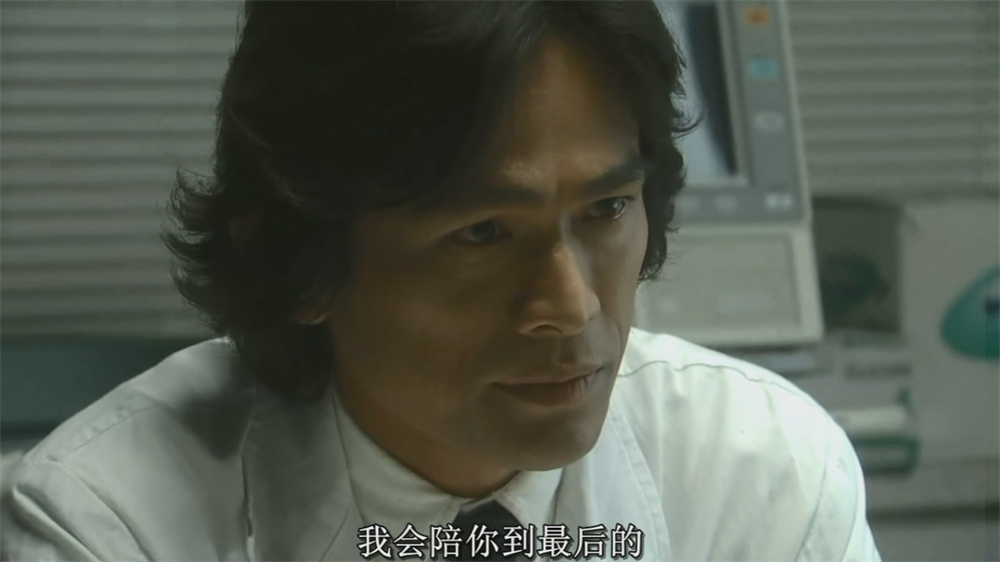
Eguchi Yosuke as Satomi Shuji
In order to tell the truth in Sasaki's lawsuit, Satomi was not only expelled from Naniwa University, but also almost ended up with his wife and children separated. It is admirable to stick to the truth for the rights of patients, but in this way, not only will you not be able to continue your research, you will not even be able to stand on the front line of fighting the disease. Is this really benefiting patients?
On the other side, Cai Qian appears to be very tough and refuses to admit that he is wrong. However, he is not untouched by the repeated pulls of the lawsuit. One detail was that during ward rounds before, he always had his hands behind his back, looking impatient. But after the lawsuit, Caiqian also began to actively check the patients' conditions at the request of the nurse.
Perhaps Zaizen and Satomi are fundamentally the same type of people - they insist too much on their "correct" ideas to the point of being paranoid and arrogant. In the end, they all paid a heavy price for this. If Caizen could put down his arrogance earlier, and if Satomi could be more diplomatic and worldly, would everything be different?
But such an assumption does not make much sense. Because, although they have superb medical skills and strong will, they still have "human" weaknesses after all, and they will inevitably go the wrong way and do the wrong things. As an elite among all living beings, if this is the case, how can we be spared? Thinking about it this way, I felt somewhat relieved.
The drama finally comes to the final plot, which is the tragic ending when Caiqian was diagnosed with cancer and died unfortunately. Many years ago, every time I saw this place, I always felt tight-chested and depressed, feeling a little bit saddened by my unrealized financial future. But looking back now, I have different thoughts. What would happen if Caiqian didn't get sick? After a smooth and prosperous journey, can he still write the letter to Satomi and seriously reflect on his own problems?
Perhaps, cancer itself is also the show's most profound metaphor. First of all, there are so many excellent doctors gathered in Naniwa Hospital, which has top-notch medical standards, but no one noticed early that there were danger signs in Caimae; secondly, officials, experts, and doctors of all kinds racked their brains and wasted money in order to compete for power and wealth. Although I tried my best, I was helpless and helpless in the face of the disease. Perhaps, the above phenomenon is the "cancer" that is difficult to overcome in modern society - people discuss innovation, development, and progress all day long, but they have not learned how to care about a specific "person."
In this sense, this play is not only about medicine, not only the system, not only the concept, but most importantly, it is the perception of life. We often stand in front of the railroad tracks in the same Auschwitz concentration camp as Dr. Caiqian. Destiny is different here, but you can never control it, because being born as a human being is ultimately "limited". After people reach middle age, they also have a more emotional understanding of this point, and no longer need to be entangled in the opposition between Zaizen and Satomi.
Perhaps, for this reason, this drama chose a theme song with a religious theme, "Amazing Grace". If the "white tower" symbolizes the perfection of divinity, then we are all just small humans after all. In the process of climbing up, don't forget the surrounding scenery and the people and things that really need to be concerned about.
Back then, like Cai Qian, I felt infinitely melancholy because of my failure to fulfill my life ideals. But today, I just want to say to him and myself that it has been a hard journey along the way.
